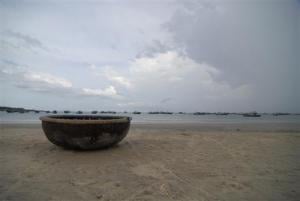Weakening Euro Hurting Vietnam’s Export Market

Key export-earning sectors in Vietnam are now facing renewed challenges that would impact their profits significantly owing to the adverse effects of the Euro’s recent fragile state. The Greek debt crisis caused Europe’s single currency to fall to a four-year low of $1.2142, translating around 15% depreciation in the first half of 2010, and with no signs that the situation in Europe will ease, economists see the Euro to further drop to $1.06 by the end of the year. With that, EU importers of Vietnamese products are asking their partners for lower prices, resulting to delays in the negotiations of contracts for Vietnam’s exports to the region.
Industries affected include Vietnam’s seafood exports, woodworks, other food products and textile among the many. Vietnam’s currency has depreciated by about VND400 from May and VND 4,000 compared to its value at the beginning of 2010. It may have improved slightly this week to around VND 23,000 and maintained its exchange rate with the USD, but the Euro’s decline against the dollar caused commodities bound for Europe to become more expensive, compelling them to insist on a bargain. The apprehension that the Euro will continue to slip had resulted for many European importers to play safe and not committing themselves to huge contracts accompanied with long delivery terms.
The ongoing haggle has so far affected several companies with large percentage of their products regularly shipped to the EU. Accounting to about one-third of Vietnam’s exports, the region is considered among its largest markets. Now, a growing number of companies have started to grow weary over the 10% reduction of export prices to the region since January and are looking at the possibility of having to accept really low profits just to make sure they continue to market their products rather than accumulating surplus which could lead to huge losses.
The Sacombank Securities Company (SBS), Vietnam’s highest chartered capital joint-stock bank, recognizes the necessity for “suitable solutions” in the form of newer agreements in import-export prices between EU and Vietnam to allow Europe to counter its difficulties while creating the most suitable arrangement for Vietnam’s export activities.
The Other Side of the Coin
Even with the worst disasters, there are still some who knows how to look at the brighter side of things and benefit from the circumstances. Many experts believe that the current situation isn’t that alarming since most of the Vietnamese exporters are paid in US dollars. Importers who make payments in Euros are now on the winning side in terms of profits. Although the political turmoil in the Eurozone had resulted to an outflow of some foreign investments, it is less likely to affect the VND’s value either. The Euro’s sharp slide is even seen to benefit Vietnamese who are in need of Euros for tourism, overseas studies in Europe or healthcare purposes.
A close watch on Europe’s financial crisis is of much importance, however, to further determine its long-term impact on Vietnam’s economy. But the option for Vietnamese exporters to pay attention to non-traditional markets apart from Europe is a very promising option to boost its export markets. The recent oil spill in the Mexican Gulf had hit the region’s seafood industry significantly. This could be an opportunity for a newer export market. Apart from United States, other potential markets include Romania, China, Middle East, Czech Republic and Bulgaria.









